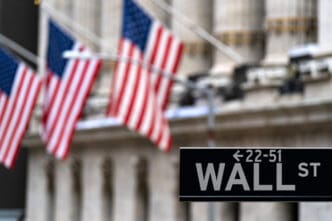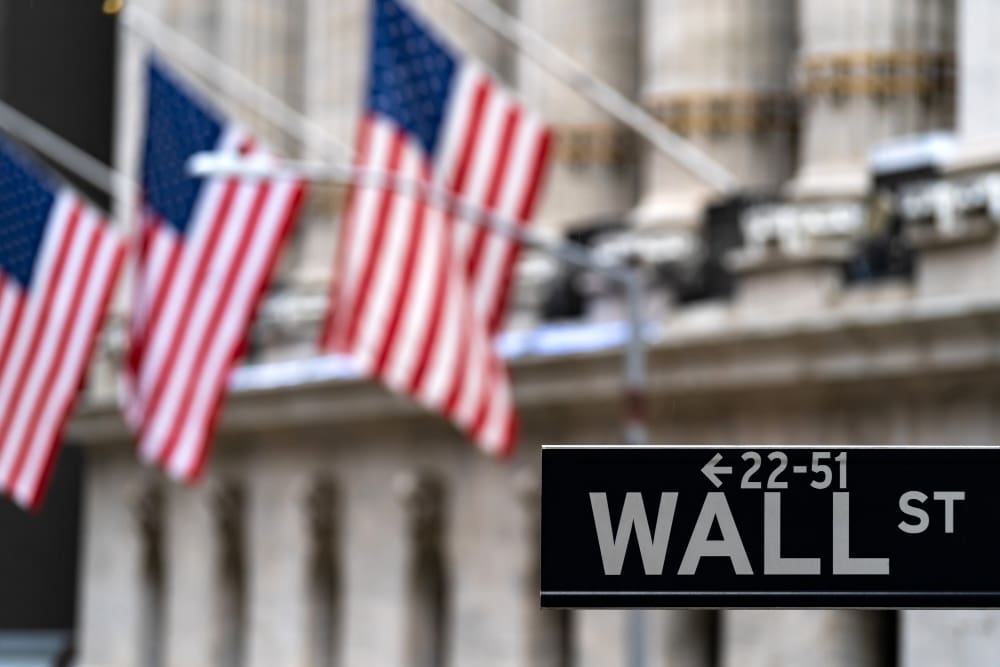U.S. stocks experienced a significant rise on Monday morning as traders responded to the Trump administration’s decision to exempt smartphones, computers, and various electronics imported from China from tariffs. The Dow Jones Industrial Average surged 480 points, equating to a 1.2% increase, while the broader S&P 500 climbed 1.75%. In the tech sector, the Nasdaq Composite rose by 2.4%.
Stock futures in the U.S. gained momentum over the weekend following investor reactions to a U.S. Customs and Border Protection notice, released late Friday, announcing tariff exemptions for electronics from China. These exemptions followed President Donald Trump’s imposition of a 145% tariff rate on imports from China on Wednesday. Notably, these exemptions do not affect the 20% tariff imposed due to China’s involvement in the fentanyl trade.
Among the beneficiaries, tech stocks such as Apple thrived on Monday morning. However, uncertainty persists regarding the ongoing trade war with China. Commerce Secretary Howard Lutnick clarified on Sunday that the exemptions for electronics are only temporary and stated that these products would soon face separate levies. Lutnick told ABC News, “(Electronics are) exempt from the reciprocal tariffs, but they’re included in the semiconductor tariffs, which are coming in probably a month or two.”
The U.S. stock market has experienced a tumultuous two weeks. President Trump’s introduction of “reciprocal tariffs” and a subsequent 90-day pause on most of these tariffs have created volatility, with the S&P 500 falling 9% in early April, marking its worst week since 2020, followed by a 5.7% rally the following week, the best since 2023. Notably, the market saw its third-largest single-day gain after the announcement of the 90-day pause. Despite these gains, the S&P 500 remains below its April 2 closing price prior to the initial tariff announcement.
Wall Street aims to sustain the rally, though uncertainty remains prevalent. The ambiguity surrounding Trump’s trade policies continues to leave traders unsure about optimal investment strategies, raising concerns over U.S. economic growth. Analysts at Morgan Stanley noted in a recent report, “While any delay of tariffs is beneficial on the margin, it is not the same as their removal.” They also highlighted that prolonged uncertainty could negatively impact business confidence, spending, and hiring.
Goldman Sachs CEO David Solomon remarked in an earnings release on Monday that the current climate presents a “markedly different operating environment than earlier this year.” Additionally, billionaire Ray Dalio expressed concerns over the weekend, indicating that Trump’s tariffs have pushed the U.S. toward a possible recession, or perhaps “something worse,” during an NBC News interview. Dalio stated, “Right now, we are at a decision-making point and very close to a recession. And I’m worried about something worse than a recession if this isn’t handled well.”
Reflecting market sentiment, analysts at Citi lowered their year-end target for the S&P 500 to 5,800 from 6,500 on Friday, aligning with other Wall Street firms in reducing corporate earnings and growth forecasts amidst the uncertain tariff landscape. In their analysis, Citi’s experts noted, “No doubt, the goldilocks sentiment in place entering this year has given way to abject uncertainty.”
Meanwhile, gold has been a shining star for investors seeking safe havens, with its price surpassing a record $3,200 a troy ounce on Friday, marking a 21% surge this year. Goldman Sachs analysts increased their year-end price projection for gold to $3,700, underscoring the growing demand for bullion amid economic unpredictability.
The Bottom Line
For everyday Americans, the current shifts in the stock market and trade policies could have significant implications. The volatility in the market might influence individual retirement accounts and investment portfolios, potentially impacting financial stability and long-term savings. As traders navigate the uncertainty, those with investments in stocks may find themselves reconsidering their risk tolerance and diversification strategies.
Communities reliant on the tech industry may experience changes as companies adjust to fluctuating tariffs and economic conditions. Potential increased costs from semiconductor tariffs could lead to higher consumer prices for electronics, affecting households across the nation. Additionally, the potential for a recession or economic downturn could impact employment rates and job security, prompting individuals to monitor their expenses and prepare for possible financial challenges.
On a broader scale, the global trade environment remains uncertain, influencing not only economic policies but also geopolitical relations. As such, the developments in U.S.-China trade relations could shape international markets and economic stability worldwide, with repercussions that extend beyond immediate financial concerns.







